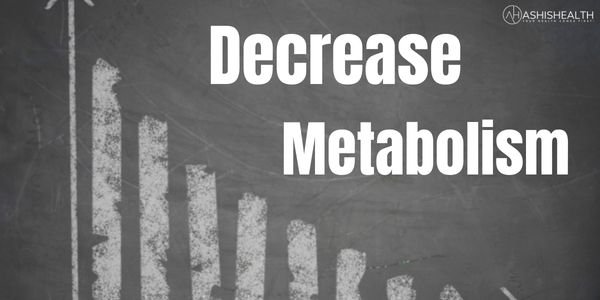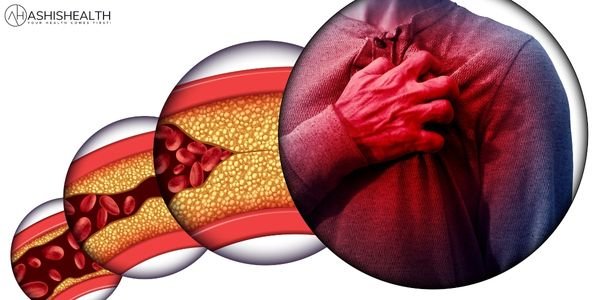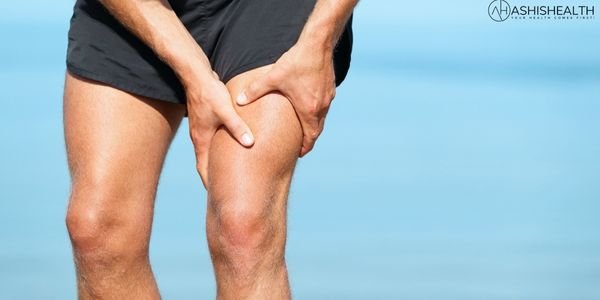keto diet has become increasingly popular in recent years, but it’s important to understand the potential benefits and drawbacks of the diet before committing to it. There are a variety of potential side effects, such as fatigue, headaches, and digestive issues, that you should be aware of before starting the diet. In this post, we’ll discuss the pros and cons of the keto diet, and explore the 10 most common side effects. Read on to learn more!
What is the Keto Diet?

The keto diet is a high-fat, low-carbohydrate diet designed to help the body burn more fat for energy. By drastically reducing carbs and increasing fat intake, the body is put into a state of ketosis which allows for faster weight loss and better health overall. While keto can offer these great benefits, there are also some keto side effects females need to be aware of. These may include keto flu, fatigue, hair loss, constipation, and disrupted menstrual cycles.
To prevent keto side effects females should consult their doctor before starting ketosis as not everyone will be suited and to ensure that the ketogenic diet is being followed correctly. Furthermore, supplementing with vitamins and minerals is essential for keto success to ensure the body is getting all of the nutrition it requires. To conclude, ketosis can be a great way to shed extra weight and promote better health; however, keto side effects females should be aware of are important too.
It is important to understand the basics of the diet and how it works before starting, as well as the potential risks associated with it. In conclusion, it is important to be informed before beginning a keto diet. While there are many potential benefits to this eating style, it is essential to be aware of the risks associated, such as those reported in cases of ‘keto ruined my health’. It is important to understand the basics of the diet and how it works before starting in order to make informed decisions and ensure the best possible outcome.
Drawbacks of the Keto Diet

The Keto Diet can be difficult to maintain in the long-term due to its restrictive nature. In the keto diet’s first week, many experience keto side effects such as headache, fatigue, bad breath, constipation, and nausea. However, sticking with keto for one to two weeks can result in increased energy levels and sustained weight loss.
Therefore, it’s important to be patient and consistent in order to reap the long-term benefits of keto. Additionally, keto dieters may want to consider seeking out articles related to keto side effects due to the fact that they vary from person to person. It is also important to remember that if keto side effects become unbearable, it might be best to consult a medical professional or discuss possible alternatives with a nutritionist.
It may also lead to nutritional deficiencies if not implemented correctly, as it eliminates certain food groups from the diet. While keto diets have been known to have many health benefits, keto side effects male have been a cause for concern. Potential keto side effects male include an increased risk of kidney stones, gallbladder issues, and even thyroid problems if not done correctly.
It is essential that keto-ers educate themselves about ketosis and the potential keto side effects male before starting the diet. Furthermore, it is important to check with a physician to make sure that keto is the right diet for you and that you are taking all necessary precautions to prevent or mitigate any male side effects male.
Finally, it is important to note that not all people respond well to the Keto Diet and may experience negative side effects such as fatigue and nausea Moreover, it is essential to be aware of the potential side effects of the Keto Diet. For individuals with kidney problems, this diet can put added stress on their kidneys and may lead to further complications. Additionally, people may experience fatigue and nausea when following the Keto Diet. Therefore, it is important to consult a medical professional prior to starting any new dietary plan.
Side Effects of Keto Diet
The “Keto Flu”

The “keto flu” is a term used to describe the collection of symptoms that some people experience when first starting a ketogenic diet. These symptoms can include fatigue, headaches, nausea, and muscle cramps. The reason for these symptoms is that when the body switches from burning carbohydrates to burning fat for energy, it can cause an imbalance of electrolytes in the body, leading to these symptoms. The body is used to burning carbs as its primary energy source and when it’s forced to switch to fat it needs time to adjust.
The main cause of the keto flu is the loss of electrolytes, specifically sodium, potassium, and magnesium. Electrolytes play a critical role in maintaining hydration, muscle and nerve function, and blood pressure. When you’re on a ketogenic diet, the body excretes more electrolytes than usual through urine and sweat, which can lead to an electrolyte imbalance, and thus the flu-like symptoms.
The good news is that these symptoms are usually temporary and can be relieved with hydration, electrolyte supplements, and a gradual transition into the diet. It’s also essential to consume enough food and to not restrict too much as it can lead to malnourishment.
Reduced Athletic Performance

The keto diet can have a negative impact on athletic performance. The reason is that, while the primary goal of any athlete is to improve their overall health and fitness, the keto diet often does not provide enough energy for intense exercise. This means that athletes will find themselves fatigued during training sessions, which can cause them to miss out on important workouts or even injure themselves by pushing themselves too hard with poor form.
Additionally, dehydration is also a common side effect when following this type of eating plan; this makes it difficult for your body to function at optimal levels while working out because you’re not properly hydrated and don’t take in enough electrolytes (salt).
Weight Regain

Weight regain is a potential side effect of going off a ketogenic diet. The ketogenic diet can be effective for weight loss, but when people go off the diet and return to their previous eating habits, they may gain weight. The reason for this is that the body may have trouble adapting to a new way of eating, and may revert back to old habits. Additionally, when the body is no longer in a state of ketosis, it may not be as efficient at burning fat, leading to weight gain.
Another reason for weight regain is that people tend to restrict calories too much when they are on a ketogenic diet, and once they go off the diet, they may overeat, causing weight gain. Also, people tend to miss some important nutrients that their body needs on a keto diet.
It’s important to note that weight regain is not inevitable and can be prevented by making a gradual transition off the diet, maintaining a healthy calorie intake, and continuing to make healthy choices. Additionally, incorporating regular physical activity and tracking progress can help prevent weight regain after going off the ketogenic diet.
Less Muscle Mass, Decreased Metabolism

Less muscle mass and a decrease in metabolism are potential side effects of a ketogenic diet. The ketogenic diet is high in fat and low in carbohydrates, which can cause the body to break down muscle tissue for energy. This happens because when the body is in a state of ketosis, it relies on fat as its primary fuel source instead of carbohydrates. However, muscle tissue is also a source of energy and can be broken down when there is a lack of carbohydrates. This can lead to a loss of muscle mass.
A decrease in metabolism is another potential side effect of a ketogenic diet. The metabolism is the process by which the body converts food into energy. When the body is in a state of ketosis, it may adjust the metabolism to a slower rate to conserve energy. This can make it more challenging to lose weight and maintain a healthy weight in the long term.
Additionally, a ketogenic diet can cause an imbalance of minerals and electrolytes in the body, which can also lead to muscle cramps and weakness. It’s important to note that not everyone will experience these side effects, and some people may not experience any side effects at all.
To avoid these side effects, it is important to consume enough protein to maintain muscle mass, and to make sure to get enough electrolytes and minerals through food or supplements.
Increased Risk of Heart Diseases and Diabetes

The diet is high in fat and low in carbohydrates, which can lead to an increase in LDL cholesterol, known as the “bad” cholesterol. High levels of LDL cholesterol can increase the risk of heart disease. Additionally, the diet may also lead to an increase in blood sugar levels, which can be a risk factor for diabetes.
The ketogenic diet may also cause an imbalance of minerals and electrolytes in the body which can lead to an increase in blood pressure, another risk factor for heart disease.
It’s important to note that not all studies agree on the effects of the ketogenic diet on heart health and diabetes, and more research is needed to fully understand the potential risks. Additionally, not everyone will experience these risks, and some people may not experience any risks at all.
To minimize these risks, it’s important to consult with a healthcare professional before starting any new diet and to make sure that the diet is well-formulated and that you’re getting enough nutrients. It’s also important to monitor your blood pressure, blood sugar levels and cholesterol levels regularly. And to make sure that you are incorporating physical activity in your routine and maintaining a healthy weight.
Keto breath may have you reaching for breath mints

Keto breath, also known as “keto mouth” is a potential side effect of the ketogenic diet. The diet causes the body to produce ketones, which are byproducts of the breakdown of fat. One of the ketones, acetone, can cause a distinct smell on the breath. This is because acetone is exhaled through the lungs, giving the breath a fruity or metallic smell.
Keto breath is not harmful and typically disappears as the body adapts to the ketogenic diet. However, it can be unpleasant and can cause embarrassment, especially in social situations.
To help with the keto breath, you can drink plenty of water, brush and floss your teeth regularly, and use sugar-free mints or gum. Additionally, you can try to incorporate more fiber-rich foods in your diet, as they can help to neutralize the odour and promote oral health.
It’s important to note that not everyone will experience keto breath, and some people may not experience any symptoms at all. However, if you’re starting a ketogenic diet, it’s essential to be aware of the potential side effects and to take steps to prevent or alleviate them.
You’ll need to drink a lot more water

On a ketogenic diet, you may need to drink more water than usual to stay hydrated and flush out toxins. This is because the body produces more ketones which can make you urinate more frequently. Additionally, the diet can cause an imbalance of electrolytes, leading to dehydration and the need to drink more water.
It’s important to stay hydrated while on the ketogenic diet to prevent dehydration, which can cause symptoms such as fatigue, headaches, and constipation. Drinking enough water can also help to prevent the formation of kidney stones, which can be a potential side effect of the diet.
It is recommended to drink at least 8-10 cups of water a day, or more if you are sweating a lot or exercising. You can also consume water-rich foods such as cucumbers, watermelon, and lettuce to increase your water intake.
Brain Fog

Brain fog is a potential side effect of a ketogenic diet. It’s a condition where people have difficulty thinking clearly, concentrating, and remembering things. The reason for this is that the brain needs glucose to function, and a ketogenic diet is low in carbohydrates, which can cause the brain to function less efficiently. Additionally, the diet can cause an imbalance of electrolytes, leading to fatigue and poor concentration.
It’s important to note that not everyone will experience brain fog, and some people may not experience any symptoms at all. However, if you’re starting a ketogenic diet, it’s essential to be aware of the potential side effects and to take steps to prevent or alleviate them. Gradual transition, consuming enough calories and getting enough electrolytes can help to mitigate brain fog. It’s also important to consult with a healthcare professional before starting any new diet and to make sure you’re getting enough nutrients.
Trouble Sleeping

The diet can disrupt the balance of hormones in the body, which can affect the sleep-wake cycle. The diet may lead to an increase in stress levels, which can also contribute to sleep problems. Benefits of Good Night’s Sleep.
A deficiency in magnesium and calcium has been linked to disturbed sleep patterns; this is because these two minerals are needed for muscle relaxation, which helps you fall asleep at night. In addition to magnesium, vitamin B6 plays an important role in regulating our ability to relax and stay asleep through the night.
The reason why some people experience trouble sleeping when following a low-carbohydrate diet is due to changes in their circadian rhythm—the biological clock that controls our brains’ internal clock—which causes them to feel more awake during the day than night (or vice versa). This can lead them to feel like they need more hours than usual before bedtime arrives so they’ll get more restful slumber time during those few hours before sunrise.
Cramps

Electrolytes are minerals that help regulate your body’s fluid balance, and these minerals are found in dairy products, fruits and vegetables. The most important electrolyte to maintain is sodium. It’s usually found in salty foods like cheese or chicken wings; however, it can also be found in other food groups as well such as canned tuna packed tuna or chicken broth.
Magnesium is another important electrolyte that may cause cramping during ketosis since the body lacks this mineral due to its metabolism changing following a diet change like this one! Magnesium helps promote healthy bones by strengthening connective tissue (which includes ligaments), muscle function, nerve transmission and brain signalling—basically everything we need for good health! That’s why it’s so important to eat more magnesium rich foods like nuts & seeds along with leafy greens when following a ketogenic diet plan such as Keto Diet Plan For Beginners
Tips for Mitigating Side Effects on the Keto Diet

It is important to stay hydrated while on the keto diet to help avoid dehydration. However, it is equally important to understand the potential risks associated with the diet. Recently, I had an experience with keto that left my body and health worse off than before. It is possible for someone to religiously follow the keto diet and still experience negative health effects. In my case, being on the keto diet actually ruined my health. Therefore, it is essential to thoroughly research any diet before you go into it, so that you can be informed and aware of any potential risks.
Adding foods high in electrolytes, like avocados and coconut water, can also help mitigate side effects of following a keto diet. It is important to note that although keto diets can have some positive effects on weight loss and overall health, there may be detrimental side effects for those with kidney disease. For example, following a keto diet can increase creatinine levels, which could put additional stress on the kidneys. Therefore, it is important to consult with a physician when considering starting a keto diet, especially if you have underlying kidney issues.
Taking supplements such as magnesium and potassium can help reduce any negative symptoms associated with the diet Besides taking supplements to reduce any negative symptoms associated with the keto diet, it is important to educate yourself on the health risks associated with this type of diet. Doing research and consulting with your healthcare professional can help determine if this diet is right for you and to assess any potential risk of keto ruining your health. Ultimately, it’s important to maintain a balanced and healthy lifestyle.
Is a Keto Diet Right for You?

The keto diet should not be seen as a quick fix for weight loss, and it may not be suitable for everyone. While it can offer dramatic weight loss results, individuals should be aware of the potential side effects on their kidneys as it can lead to kidney damage in some people. It is essential to consider one’s health and lifestyle when considering a keto diet, and consulting with a dietician or healthcare professional is recommended to ensure safety. With knowledge of the diet and caution with long-term use, individuals can reap the benefits of a keto diet while avoiding the risks.
Before embarking on the keto diet, it is important to consult with a healthcare professional to understand if it is an appropriate dietary change for you. While there are many benefits to the keto diet, such as weight loss, increased energy levels, and improved cognitive functioning, there are also some weird keto side effects that could occur. These may include digestive issues like constipation, hair loss, and bad breath. Additionally, individuals may experience fatigue and dizziness due to low blood sugar levels and a decrease in electrolytes. It is best to discuss these potential obstacles with a healthcare professional before beginning the keto diet to minimise any unwanted side effects.
In conclusion, the keto diet may be a beneficial lifestyle change if done responsibly and in conjunction with regular physical activity and healthy eating habits Thus, it can be concluded that article writing is beneficial for those who are looking to make a lifestyle change such as the keto diet, so long as it is done in a responsible manner with regular physical activity and healthy eating habits. In addition, article writing provides helpful insights into a variety of topics which can further benefit those interested in making health-related changes.
In conclusion, the keto diet is a popular and effective way to help lose weight, improve your health, and reduce your risk for certain types of diseases. However, it’s important to understand the potential side effects of the diet prior to beginning it. Common side effects include fatigue, headaches, digestive issues, and more. While the diet can be beneficial in some cases, it’s always a good idea to consult with your doctor or nutritionist before making any dietary changes.
FAQs
⬛What are the negative effects of a keto diet?
→A ketogenic diet may have several negative effects, such as the “keto flu” (fatigue, headaches, nausea, and muscle cramps), reduced athletic performance, weight regain, less muscle mass and decreased metabolism, increased risk of heart disease and diabetes, keto breath, the need to drink more water, brain fog, trouble sleeping and cramps. Additionally, it can also cause constipation and an imbalance of electrolytes in the body.
⬛How long do keto side effects last?
→The duration of keto side effects can vary depending on the individual and the side effect. Some side effects, such as the “keto flu” and brain fog, typically last for a week or two as the body adjusts to the new way of eating. Other side effects, such as weight regain, can be longer lasting if the individual returns to their previous eating habits. Some side effects may also persist if the person is not consuming enough nutrients or not getting enough electrolytes.
⬛Is keto diet healthy or harmful?
→The ketogenic diet can be healthy for some people when followed under the guidance of a healthcare professional. It has been shown to be effective for weight loss and improving certain health markers such as blood sugar and cholesterol levels. However, it may not be suitable for everyone and may have some potential negative side effects such as nutrient deficiencies, electrolyte imbalances and negative impact on athletic performance. It is important to consult with a healthcare professional before starting a ketogenic diet and to make sure that it’s a sustainable and well-formulated plan for the individual.
⬛How long should I stay on keto?
→The length of time for which an individual should stay on a ketogenic diet depends on their goals and overall health. It’s generally recommended to stay on the diet for a minimum of 3-6 months under the guidance of a healthcare professional. It’s important to monitor your progress regularly and to make sure that the diet is sustainable and not causing any negative health effects.
⬛What are the basic rules for keto?
→The basic rules for a ketogenic diet include:
-Limiting carbohydrate intake to very low levels (typically less than 50 grams per day)
-Increasing fat intake to high levels (typically 70-75% of daily caloric intake)
-Moderately increasing protein intake (typically 20-25% of daily caloric intake)
-Monitoring ketone levels to ensure the body is in a state of ketosis
-Consulting with a healthcare professional before starting the diet.
Also Read: 10 Foods to Eat to Help You Lose Weight


